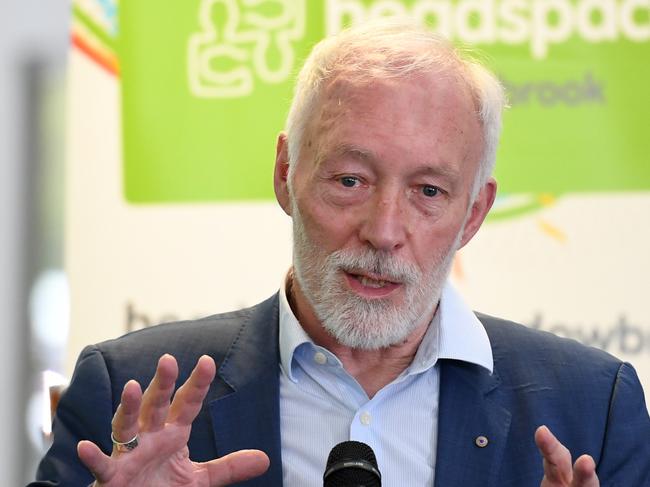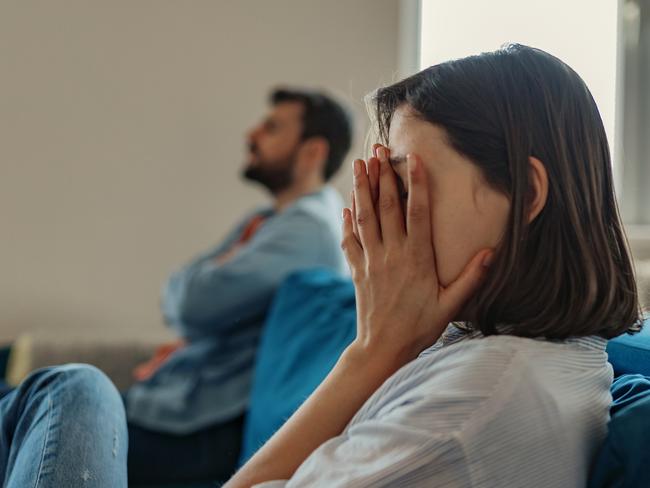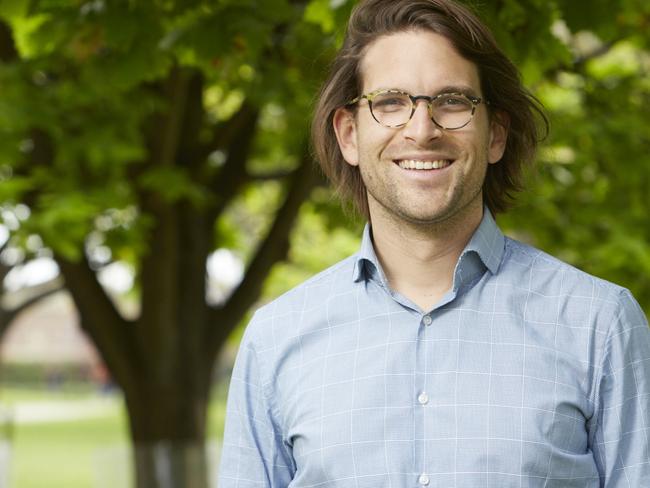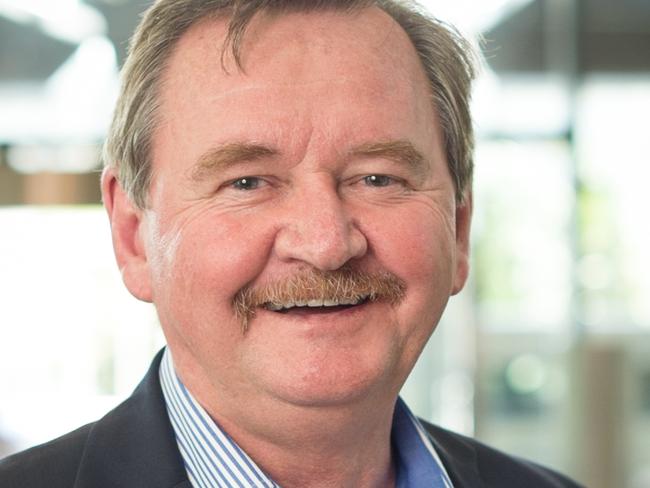YouGov report reveals the mental and physical health costs of the coronavirus lockdown
The toll of the COVID-19 lockdown has been laid bare in new research, with mental health advocate Patrick McGorry warning the consequences will be like ‘a second wave of the epidemic’.
Coronavirus
Don't miss out on the headlines from Coronavirus. Followed categories will be added to My News.
- How we beat tougher foes than COVID-19
- China clamping down on COVID-19 research: report
- 1 in 10 still shopping daily: report
The mental health toll of the coronavirus lockdown has been laid bare in extensive new polling, illuminating a crisis that former Australian of the Year Patrick McGorry warned would be like “a second wave of the epidemic”.
The YouGov survey results show for the first time the devastating impact the coronavirus lockdown is having on the mental health of ordinary Australians: one in four relationships under strain, one in two people feeling isolated and 57 per cent suffering stress.
Professor McGorry, who is executive director of youth mental health organisation Orygen, said most people would bounce back from the current hard times, “but a significant minority will not, and we already know that our mental health system was seriously under-resourced and overwhelmed even prior to this.”
“This is the second wave of the epidemic in a sense, and it’s going to have a much deeper and longer trough to it,” Prof McGorry said.
The online survey of 2085 people across all states, which was carried out between last Thursday and Easter Monday, revealed that women were reporting stress at higher rates (63 per cent) than men (51 per cent). Women reported feeling more socially isolated than men by a similar margin.
Millennials (those born between 1981 and 1996) were the most stressed of any generation, with 60 per cent of respondents stating they were feeling under pressure.
Generation Z (those born between 1997 and 2009) were the most likely to report that their relationships were under strain, with 35 per cent of respondents in this age bracket stating that was an issue.
Interestingly, older people seem to be finding their relationships a bit more robust.
Thirty per cent of Millennials said their relationship was under strain, while that number stepped down to 25 per cent for Generation X (those born between 1965 and 1980), 19 per cent for Baby Boomers (those born between 1946 and 1964) and just 9 per cent for those born prior to 1946.

Prof McGorry said “positive relationships are a protective factor”.
“It’s one of the great needs that we have, positive connections and positive relationships, and if they start fraying that’s another risk factor for mental ill health,” he said.
The YouGov data also showed the corrosive effect the virus was having on our views about the future.
Nearly half the respondents (46 per cent) said they had a more negative long-term outlook, and that number spiked to 49 per cent for Baby Boomers and members of Generation X.
Survey participants gave a multitude of reasons for the anxiety they were feeling, with not seeing family and friends during the lockdown topping the list.
Sixty per cent of respondents said they were worried about paying bills, 49 per cent reported being concerned about losing their job, 48 per cent stated they were anxious about feeding their family and 38 per cent were worried about losing their home.

The pressures on parents caring for children were also apparent in the research, with 54 per cent saying it was causing tension in the household and 41 per cent describing home schooling as difficult. Women were more likely to have that response than men, in both cases.
Prof McGorry said the government would need to boost mental health capacity, just as it had boosted the number of ventilators and intensive care units in response to the COVID-19 crisis.
“The line from the government has been to try and keep up morale up, and try to focus on what we can do to strengthen our mental health during what is hopefully a relatively temporary crisis,” he said. “I really support that, but behind the scenes you’ve got to do something very serious because there is going to be a very big surge, putting pressure on a system that is already massively struggling.”
YouGov research director Julie Harris said the survey results “substantiate the concerns of mental health experts around the human cost of the COVID-19 pandemic”.
“Our findings suggest that it’s important to not make a general assumption that someone is okay,” she said. “Reach out and check on friends, neighbours and family members and get in contact with a mental health support organisation if you, or someone you know, is struggling to cope over the next few months.”
PHYSICAL HEALTH ALSO FACING CHALLENGES
Getting more sleep, eating healthier food and exercising more – all those things your GP was already telling you to do – is getting tougher in the lockdown period for many, a YouGov survey of 2085 Australians has found.
Exercise has been a big victim of the coronavirus, with more than one in three respondents – 35 per cent – saying they were doing less than they were before.
Twenty-nine per cent of respondents stated they were getting less sleep, and 27 per cent said they were eating less healthily than they were before.
Similar findings are popping up in a raft of other surveys.
Research by Australian personal finance app Humaniti revealed that 19 per cent of their 900 survey respondents were drinking more, 25 per cent were eating more, and 30 per cent were eating more indulgent foods such as ice cream and chocolates.

Bastion Insights stated that “bad habits are getting worse” in their latest research summary of 500 people. They found 52 per cent of smokers were smoking more and 37 per cent of drinkers were drinking more.
In the past week, 24 per cent of respondents to the latest Bastion Insights tracking survey were eating less healthily, 28 per cent were getting less sleep and a whopping 42 per cent were exercising less.
Dr Sandro Demaio, CEO of VicHealth, said the recent survey results about food consumption were not surprising.
“It is concerning that one in four say they’re eating more, but it’s not surprising,” Dr Demaio said. “When we are working from home, eating patterns go out the window. If there’s extra food in the pantry and we’ve overstocked, we are more likely to see it and eat it.”
Dr Demaio said the number of people who were exercising less suggested that some people were not aware that exercising was a legitimate reason to be outdoors.
“The government has been very clear, we need to stay indoors as much as possible, but they have been forthright in saying there are four reasons we can be going outside, and one of those is exercise,” he said.
“It is an important message for people to understand that for their mental health, it is important to stay active.
“It is perfectly safe to leave the house to exercise – as long as you continue to maintain social distancing, that you’re well when you do it and you wash your hands when you return. I think this is an important message to drive home once again,” Dr Demaio said.

Professor and GP Dr Paul Van Buynder said the messaging around exercising was confusing for many people.
“There’s a clear degree of confusion about what restrictions are in place, I think in part because the degree of contact you can have with somebody varies depending on what you’re doing,” he said.
“Anybody who has been past [popular Melbourne running track] the Tan in recent days, particularly over the Easter long weekend, would have seen that the number of people who were exercising there was astonishing, and it was impossible for those people to be keeping social distancing, because they were all using a common running track in huge numbers.”
Social distancing was working to curb COIVD-19 infections in Australia, Dr Van Buynder said, and it was appropriate to have a discussion about ways people could ameliorate its negative effects – both mental and physical.
While the YouGov research illustrates the serious health impacts of lockdown, it also revealed that not all of us are lazing around smoking, drinking and eating to excess.
Twenty-four per cent of respondents to their survey said they were eating more healthily than before the lockdown period, while 25 per cent said they were exercising more, and 26 per cent reported getting more sleep than they were previously.
If you need assistance, call Lifeline on 13 11 14, the Kids Helpline on 1800 55 1800, Headspace on 1800 650 890, MensLine Australia on 1300 78 99 78 or Beyond Blue on 1300 224 636.

